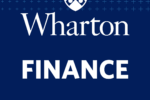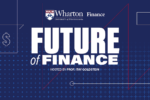 Professor Sylvain Catherine and his co-authors Max Miller and Natasha Sarin were named winners of the Dimensional Fund Advisors First Prize from the American Finance Association for their paper, “Social Security and Trends in Wealth Inequality,” published in the Journal of Finance. The award places Professor Catherine among a select…Read More
Professor Sylvain Catherine and his co-authors Max Miller and Natasha Sarin were named winners of the Dimensional Fund Advisors First Prize from the American Finance Association for their paper, “Social Security and Trends in Wealth Inequality,” published in the Journal of Finance. The award places Professor Catherine among a select…Read More Social Security and Measuring Wealth Inequality
 Professor Sylvain Catherine and his co-authors Max Miller and Natasha Sarin were named winners of the Dimensional Fund Advisors First Prize from the American Finance Association for their paper, “Social Security and Trends in Wealth Inequality,” published in the Journal of Finance. The award places Professor Catherine among a select…Read More
Professor Sylvain Catherine and his co-authors Max Miller and Natasha Sarin were named winners of the Dimensional Fund Advisors First Prize from the American Finance Association for their paper, “Social Security and Trends in Wealth Inequality,” published in the Journal of Finance. The award places Professor Catherine among a select…Read More 










